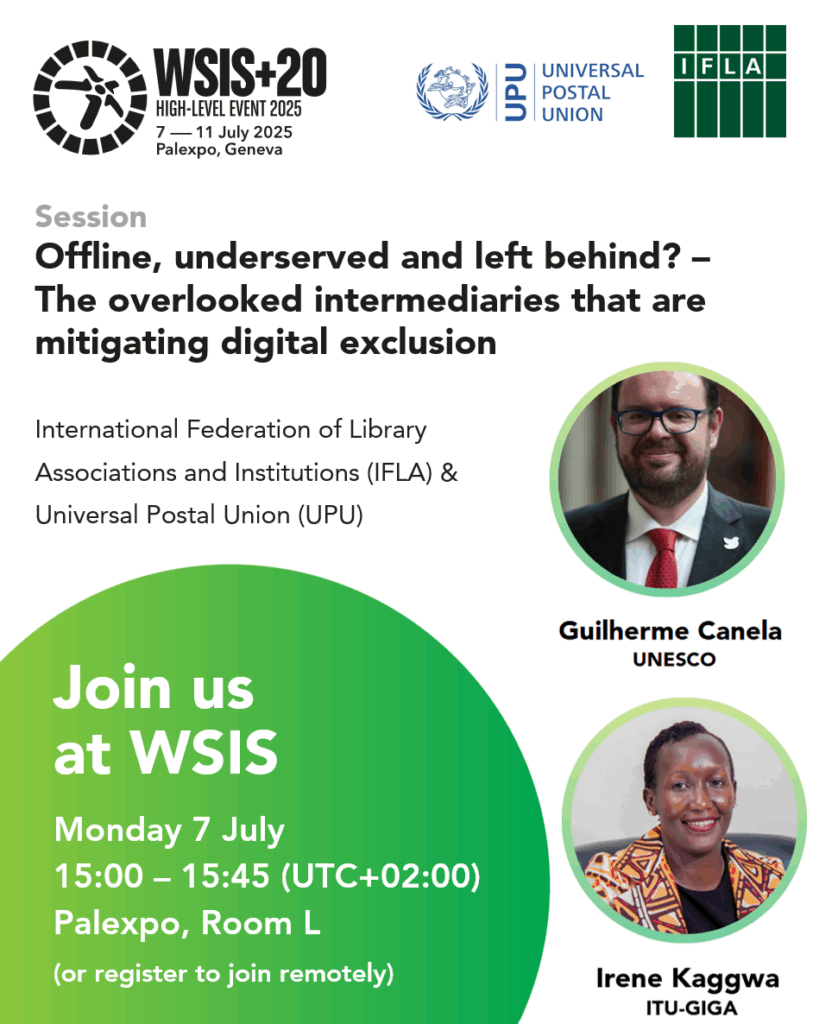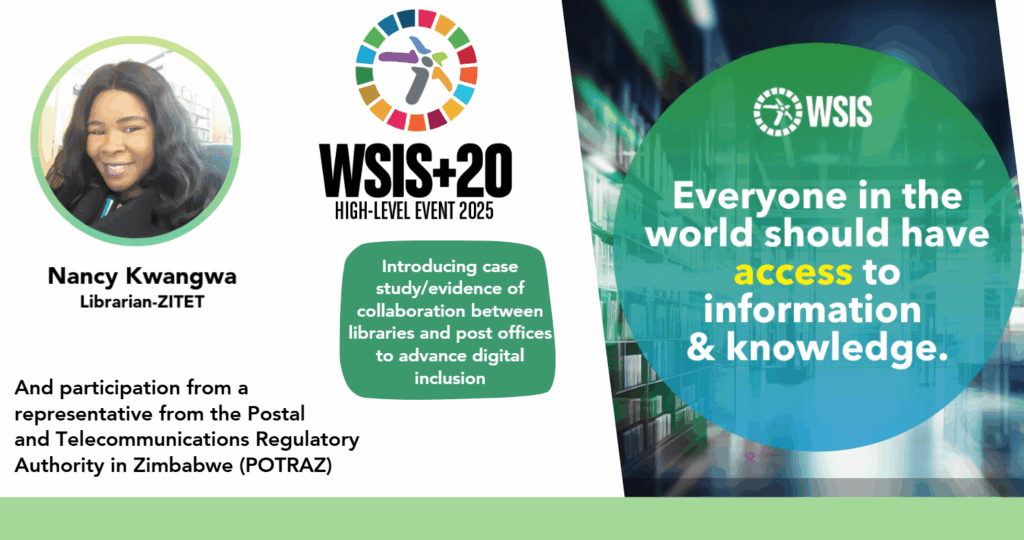Offline, underserved and left behind? – The overlooked intermediaries that are mitigating digital exclusion
How are trusted community hubs like libraries and post offices helping close the digital divide for all?

Despite decades of progress, 2.6 billion people remain offline, and billions more lack meaningful connectivity. This digital divide is not only about access—it reflects deep inequalities in digital skills, device affordability, infrastructure quality, connectivity speed, and the ability to participate fully in digital societies.
While much of today’s digital inclusion discourse rightly centers on extending connectivity to individuals and communities, this focus often overlooks a critical layer of support: local anchor institutions. As societies continue to digitize essential services, those who remain disconnected risk deeper social, economic, and digital exclusion. Yet few initiatives are geared toward supporting these populations in the interim.
This session highlights the role of libraries, post offices, and other anchor institutions in closing this gap.
To illustrate this potential in action, the session will feature a case study from Zimbabwe, showcasing successful cooperation between libraries and postal services to expand inclusive access. The study highlights how these two anchor institutions, through complementary digital services, have significantly improved the lives of the communities they serve—offering connectivity, skills training, and access to essential digital resources.
Looking ahead to WSIS beyond 2025, this session calls for greater recognition and investment in these institutions as vital infrastructure for inclusive digital transformation and portrays how partnerships with local governments, other organizations and stakeholders such as UNESCO, ITU and more, may help guide supporting legislation, policy debate and amplify important messages.
